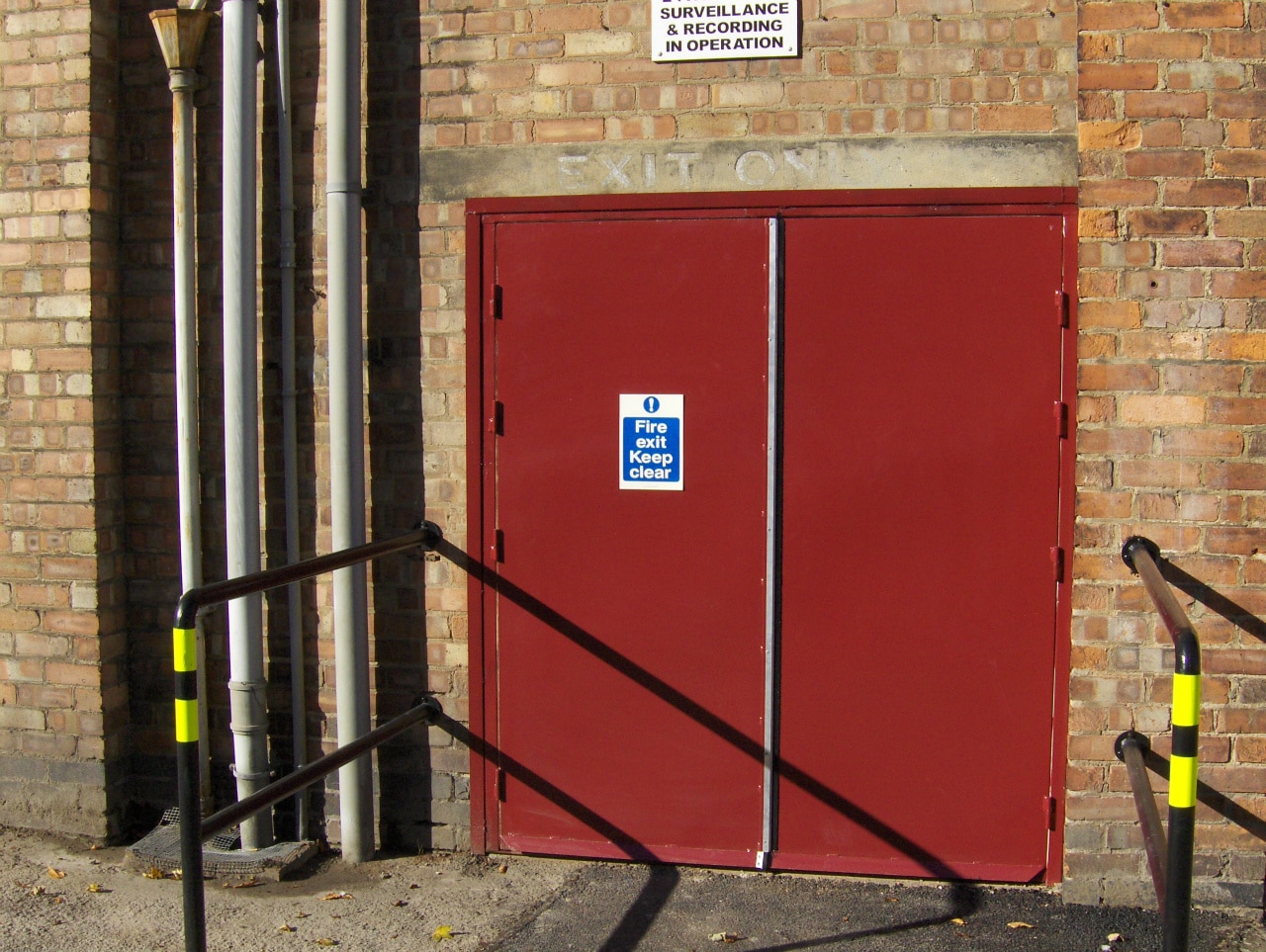Norton supplies a range of different products and services, including roller shutters, barriers, gates, maintenance and repairs, and of course, industrial doors.
But in this month’s blog post, we’re going to be talking about steel doors. Steel doors are one of the products we sell, and today, we’ll go into detail about them.
What is a steel door?
Steel doors are a special kind of door that are very strong. This means that they’re typically used in places where security is a priority – airports, offices and warehouses for example.
The name ‘steel door’ is a bit of a misnomer. Only the outer layer is steel – inside the door is polyurethane or polystyrene. There’s a good reason for this: if the door was made completely out of steel, it would be very heavy and would likely tear out the hinges! There’s also the fact that heat and cold travel through steel easily. By putting polyurethane or polystyrene within the door, it acts as a thermal barrier, keeping out the heat and the cold.
When would you use a steel door?
There are many different situations when you might use a steel door. Suitable applications for steel doors include factories, warehouses, offices, schools, universities, hospitals, shops, hotels, car parks, recording studios and theatres.
We should also note that steel doors normally open to the outside, such as into a car park. They’re rarely used indoors unless there’s a strong need for security or fire protection.
What are the advantages of steel doors?
Steel doors have lots of advantages over normal doors:
- Strength. Steel doors very strong, which helps to keep out trespassers.
- Insulation. Steel doors contain polyurethane or polystyrene which acts as an insulator and keeps out unwanted heat and cold.
- Fire Protection. Most steel doors offer some degree of fire protection. If there’s a fire, a steel door will slow its progress.
- Reduced noise. Because steel doors are so thick and heavy, they offer some ability to dampen noise.
What are the disadvantages of steel doors?
One disadvantage of steel doors is that they are quite difficult to install because they are so heavy. So if you do get a steel door, it’s best to let professionals install it for you instead of trying to do it yourself.
Another disadvantage is that it’s difficult to cut through steel doors. This means that if you wanted to add a window later, it may not be possible.
Steel doors by Norton
Here at Norton, we’re proud to offer the M2M+ range of steel doors. Every door in this range is strong, lightweight and durable. The range of doors includes a door for every purpose and application. Available with a wide scope of locking options, vision panels, and louvres, every one of our doors is specifically engineered to suit your requirements.
Marine grade options are also available for coastal environments.
For bespoke requirements that fall outside of NID’s standard specification, M2M+ Specialist doors are also available.
Furthermore, all our doors can come with fire rating (up to 240 minutes), certified under the CERTIFIRE scheme.
Our steel doors are also available with an optional acoustic rating (tested by Lorient to BS EN ISO 10140-2:2010), with RW ratings ranging from 28dB to 40dB, depending on specification.

